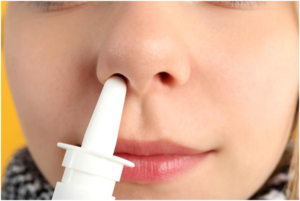Did you know that about 4 in every 10 children under 6 have early childhood caries in Singapore? Many would find this fact unsurprising because of how much sugar people eat daily. After all, we all have heard that sugar is your teeth’s number one enemy. But is the link between sugar and tooth decay scientifically proven, or just a myth?
In this article, we’ll discuss the answer to this question. We’ll also give you some tips on how to avoid getting cavities.
What Is Tooth Decay?
Tooth decay or dental carries is an oral disease in which the bacteria inside your mouth form an acid. This acid then attacks your tooth’s enamel and dentine parts, causing them to decay. When left untreated, the decay increases, creating a hole in your tooth called a cavity. In many cases, dental caries can lead to infection, pain, and even tooth loss.
The following are symptoms you may experience if you have a cavity:
- Toothache and sensitivity
- Visible dark holes or pits in your tooth
- Sharp pain when biting down on food
- Dark or white staining on a tooth’s surface
Does Sugar Cause cavities?
Yes, many studies have found sugar to be a major cause of cavities. These free sugars are most commonly found in sweetened beverages, e.g., juices, soft drinks, coffee, etc. They are also a core ingredient for major desserts like cakes, cereals, syrups, etc. Since children enjoy these delicacies more than adults, you’ll find them with sugar-rotten teeth more often.
In addition, natural sugar sources like certain fruits, especially dry fruits, can be problematic, too.
How does Sugar Cause Cavities?
Plaque is a sticky biofilm full of bacteria known to repeatedly form in your mouth. When you consume food and beverages with free sugars, the ingredient acts as food for the bacteria. The bacteria in the mouth use the sugar for energy to form a substance called lactic acid.
This acid works to dissolve the enamel of your teeth, causing decay. If the decay isn’t detected early, it can escalate to form abscesses, which can lead to infection.
How to Prevent Tooth Decay?
These are some ways you can prevent tooth decay:
- Toothbrush at least twice daily, ideally after every meal and before sleeping. Make sure to use a toothpaste that contains fluoride.
- Use a mouthwash that contains fluorides and antiseptic ingredients to rinse your mouth. This will get rid of any plaque-causing bacteria camping near your teeth.
- Floss regularly, at least once a day, to remove any plaque between your teeth.
- Use sugar-free gum to inhibit demineralization and prevent dental caries.
- Eat a balanced diet and cut down on food with free sugars. If you do snack on something sweet, make sure to brush right after.
- Regularly visit your dentist for routine checkups to catch any decay before it worsens.
Conclusion
Dental cavities may seem harmless initially but can cause pain and tooth loss as the decay progresses. So, the key to preventing them is keeping your mouth bacteria-free and avoiding free sugars.
With almost all food and beverages today containing some percentage of sugar, this can be difficult. So always stay on top of your oral care habits and brush your teeth after every meal.




